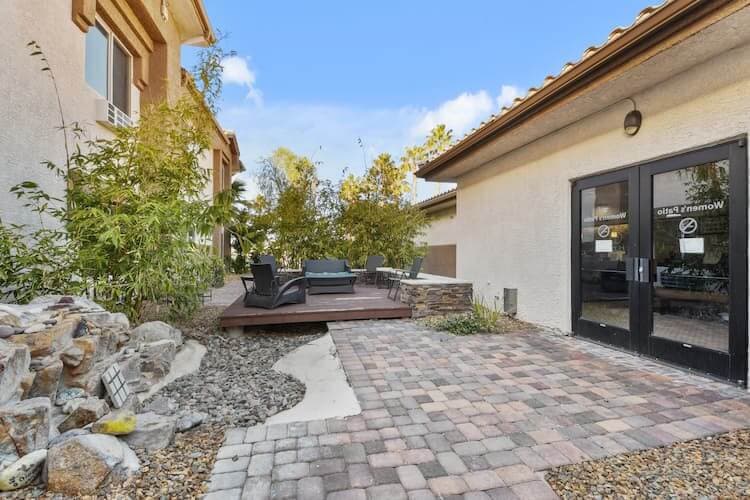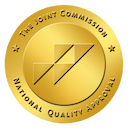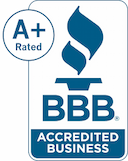Drug & Alcohol Rehab Near Salt Lake City, UT
While the Utah capital Salt Lake City is home to many rehab centers, many may seek treatment out of state for a variety of reasons. Whether they are seeking a lower cost of treatment or distance from their usual environment, Utah residents may seek treatment in Nevada. Facilities like Desert Hope Treatment Center in Las Vegas can provide patients with evidence-based addiction care.

Rehab for Drug & Alcohol Addiction Near Salt Lake City, UT
Addiction treatment isn’t one-size-fits-all. Finding a program that works for you is critical to your success. If you are looking for drug/alcohol rehab, you can learn more about your addiction treatment options in Nevada using our Nevada rehab guide.
Addiction treatment rehabs near Salt Lake City, Utah can help those struggling with substance misuse find recovery. Addiction is a chronic relapsing disease, but it is treatable with evidence-based practices. While Nevada can be a bit of a drive, it hosts various treatment centers for those seeking addiction rehab. Finding an addiction treatment facility in Nevada can be an important first step in achieving recovery.
Addiction Treatment at Our Rehab in Las Vegas
There are many different levels of care that one may experience while seeking addiction treatment. Which programs one attends will vary depending on their needs, but some of the more common treatment settings at Desert Hope include:
- Detox. Medical detoxification services, or detox for short, is the process by which the body rids itself of harmful substances. Due to the potential appearance of uncomfortable withdrawal symptoms, many may choose to undergo this process with medical supervision.
- Inpatient/Residential treatment. Inpatient (or residential) treatment allows the patient to live at the rehab facility while receiving 24/7 care. Inpatient programs are typically set in a hospital, while residential programs usually occur at a dedicated rehab facility.
- Outpatient treatment. Outpatient treatment allows the patient to live and work at home while still receiving care. There are three main types of outpatient treatment: standard outpatient, intensive outpatient, and partial hospitalization programs.
Additionally, there are various therapies offered by Desert Hope, such as:
- Cognitive behavioral therapy (CBT).
- Dialectical behavior therapy (DBT).
- Motivational interviewing (MI).
- Eye Movement Desensitization and Reprocessing (EMDR).
- Family therapy.
- Psychoeducation.

Why Choose Desert Hope Treatment Center?
Desert Hope understands that comfort can be as vital for patients as the treatment, and provides various accommodations and amenities to their patients.
Amenities and Offerings at Desert Hope
Desert Hope Treatment Center offers a variety of amenities and accommodations, such as:
- 12-step meditative walk.
- Art therapy room.
- Gourmet meals.
- Indoor fitness center.
- Outdoor fitness area.
- Library.
- Music room.
- Onsite laundry facilities.
- Outdoor patios.
Take a Look Inside Our Nevada Rehab Center
Specialized Addiction Treatment Programs Offered
Members of certain demographics may attend specialized treatment programs while attending addiction rehab in or around Salt Lake City. While the type of specialty program may vary, some of the offerings at Desert Hope include:
- Veterans’ programs: Oftentimes veterans will face unique challenges when struggling with addiction. Veterans programs are designed to address these challenges and help this group find recovery.
- First responders’ programs: First responders, like firefighters, EMTs, or police officers, may develop addiction while working in a high-stress field. These programs are tailored to help this group process stress and achieve recovery.
How to Get to Desert Hope Treatment Center From Salt Lake City, Utah
Salt Lake City is quite distant from Las Vegas, but accessible. One of the fastest ways would be to fly from Salt Lake City to Las Vegas. The flight usually takes about an hour and a half. However, this can be costly. Driving may be a longer but more appealing option to Salt Lake City residents. In order to get to Las Vegas, simply take the 15 south from Salt Lake City, and continue until you arrive in Las Vegas. You can reach Desert Hope Treatment Center at 2465 East Twain Avenue. The whole trip should take about 6 hours.

How to Pay for Addiction Treatment Near Salt Lake City, Utah
There are several ways to pay for addiction treatment, ranging from using insurance to covering the cost out-of-pocket.
In order to pay for addiction treatment near Salt Lake City it’s important to know what payment options are available to you. One of the most common ways to pay for treatment if through private or public insurance. Private insurance is usually provided by an employer or purchased on the healthcare marketplace. Public insurance, like Medicare and VA insurance, are usually provided by government organizations. Some public insurances may have requirements for residents attending treatment out of state. Regardless, it’s important to contact your insurance provider before committing to treatment to determine you coverage.
Self-pay is also a common option that many may use to pay for treatment. Paying cash is common, though many facilities may take check or credit. Some may offer to set up payment plans to make the upfront costs more manageable, while others may offer sliding-scale fees.
Does Insurance Cover the Cost of Drug Rehab Near Salt Lake City?
The Affordable Care Act (ACA) requires all health insurance plans to provide some degree of coverage for the medically-necessary treatment of mental health disorders. This means that your insurance plan may cover some or all of the cost of addiction treatment in Nevada. However, coverage can vary depending on location, plan, and the type of services sought. Whether you have Aetna, Cigna, Ambetter, or some other insurance provider, it’s important to contact them and any prospective rehab centers to determine costs before committing to treatment.
Get Admitted to Addiction Treatment Near Salt Lake City
If you or a loved one is looking for addiction treatment in or around Salt Lake City, Utah, it’s important to remember that you are not alone. Help is available at Desert Hope Treatment Center. Consider calling out admissions navigators at . These professionals can help answer questions about addiction and help verify your insurance benefits. Don’t delay, call us today at to get started, or visit our admissions page.




